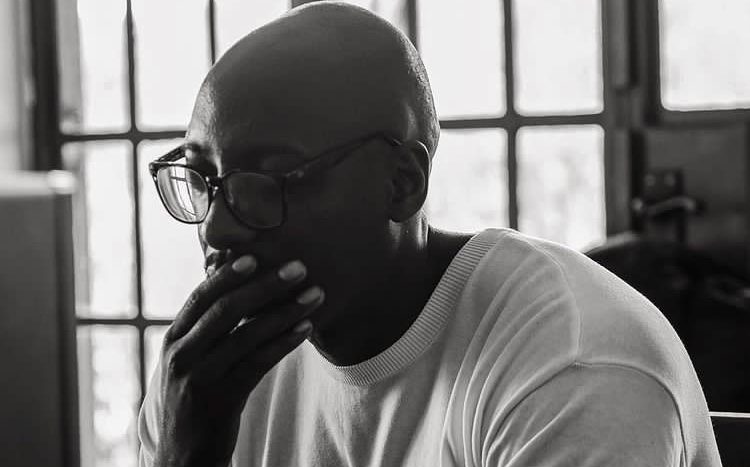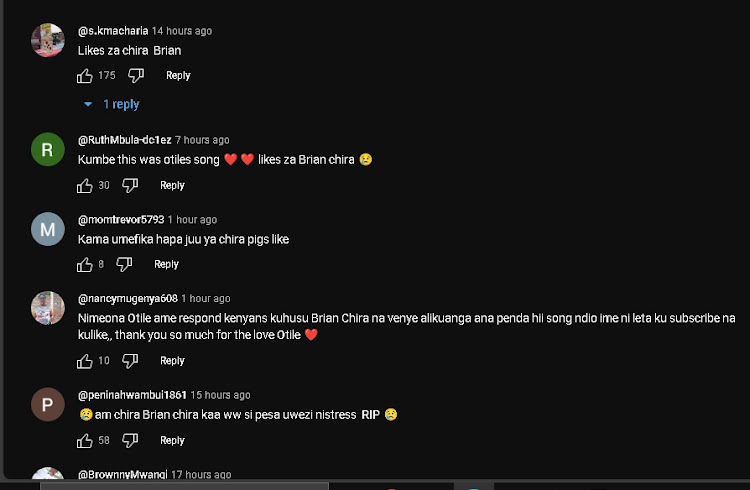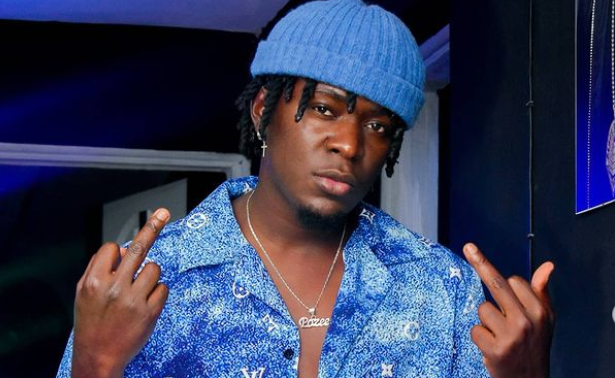The ongoing clash between Kenyan music titans Bien-Aimé Baraza and Otile Brown has captured the attention of fans and industry watchers alike. What began as a series of online jabs has evolved into a full-blown public rivalry, underscoring not only personal differences but also a fierce competition for digital supremacy.
Now, beyond the insults and social media theatrics, fans are asking: Who’s really on top?
Manager Quits, Bien Shades, Otile Strikes Back
The latest chapter in the feud began in late July when Mumbi Maina, Otile Brown’s long-serving manager, resigned from her role. Seizing the moment, Bien—renowned for his work with Sauti Sol and recently named Spotify’s most-streamed Kenyan artist of 2024—posted a video of his hit song “All My Enemies Are Suffering.” The track, already viral, was widely interpreted as a subtle jab at Otile.
Otile didn’t hold back. On July 28, he blasted Bien on Instagram, calling him “a loudmouth,” “fake,” and “desperate for relevance.” According to Otile, Bien thrives on drama and TikTok trends rather than on making meaningful music.
“He’s chasing clout, not legacy,” Otile fumed, accusing Bien of prioritizing controversy over artistry.
Who’s Winning Online? Let the Numbers Speak
As the war of words escalates, digital metrics offer a clearer picture of the artists’ influence. Here’s a snapshot as of July 30, 2025:
Spotify Streams
-
Bien: 70 million+ streams across solo and collaborative tracks. Strong international presence in Kenya, Nigeria, and the UK.
-
Otile Brown: 62.6 million streams, a remarkable feat for a fully independent East African artist.
YouTube (Official Channels Only)
-
Bien
-
Subscribers: 393,000
-
Total views: 54 million
-
Top songs: “Too Easy” (12.3M), “Lifestyle” (4.5M), “Safari” (4.4M)
-
-
Otile Brown
-
Subscribers: 1.6 million
-
Total views: 456 million
-
Top songs: “Dusuma” (42.7M), “Chaguo La Moyo” (32.4M), “One Call” (30.9M)
-
Instagram Followers
-
Otile Brown: 2.2 million
-
Bien: 863,000
Clearly, Otile dominates on YouTube and Instagram, while Bien holds the Spotify crown and broader global reach.
Fans React: Team Bien or Team Otile?
Online reactions have been split, ranging from pure entertainment to exasperation.
-
@KenyaBeatz: “Otile dragging Bien for attention-seeking is wild! Both need to focus on music #BienVsOtile.”
-
@NairobiVibes: “Bien’s ‘Enemies’ shade was savage, but Otile’s comeback? Personal! #MusicBeef.”
-
@TrollHunterKE: “Can we get a collab instead? Bien vs Otile is the drama we didn’t ask for.”
Fan loyalties are clear:
-
@CoastMelody: “Bien’s streams prove he’s got the edge. Otile’s just salty #TeamBien.”
-
@MusicLoverKE: “Otile’s right. Bien’s everywhere lately. Let’s see who really delivers the next hit #TeamOtile.”
Feud or Strategy? Analysts Weigh In
According to a K24 Digital report on July 29, this clash might be less about real animosity and more about strategic branding. With both artists navigating different phases of their careers—Bien post-Sauti Sol and Otile as a solo act—the drama could be fueling engagement and streaming numbers.
So far, neither artist has walked back their comments, keeping fans on edge for the next round.
A Call for Unity in Kenyan Music
Amid the spectacle, many fans are calling for reconciliation.
-
@JusticeSeekerKE: “Let’s support both instead of this nonsense #PeaceInMusic.”
-
@HopefulKenyan: “Bien and Otile, sort it out for the fans #KenyaMusicUnity.”
Whether it ends in collaboration or continued conflict, one thing is certain: the Bien-Otile saga is far from over—and Kenya’s music scene is watching.






















